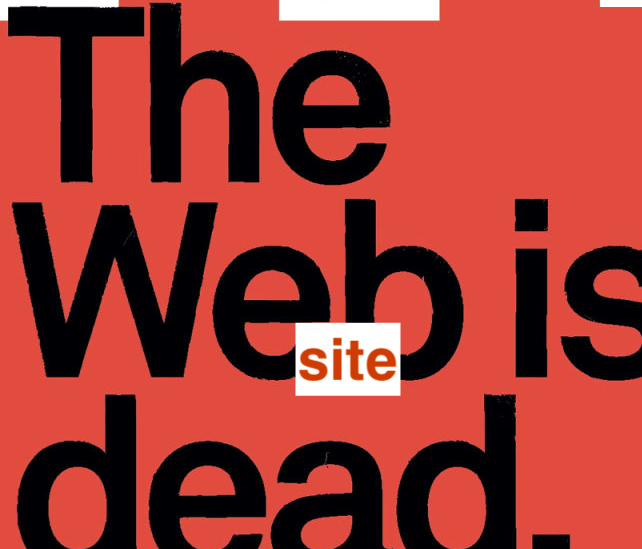Pop culture is an endless 'Bohemian Rhapsody' created by millions and millions of enablers. "We are the champions... and we will keep on fighting till the end...". Yet what did we conquer? Collectively we can't figure nor find! I am an enabler, you're an enabler and so is next person. Boomer or Doomer. Alt_Right or Queer Theory. Greta Thundberg or Elon Musk. Primitivism or Futurism. Metaverse or Mindfullness. A fetish for synthesizers or cats? Our temporal attention and anxiety colludes, upon virile binary codes spawned via info-tech. Our neural networks winding into digital networks, floating on liquid crystal display. Touching your mobile 1000+ times a day? Our days and nights spent scrolling through poor, bureaucratic technology which is apparently "harvesting our mind". The flying cars and interplanetary rides never came to be. Work never disappeared, the Ads never stop and globalization failed. Stress is the all pervasive pandemic. Oh but we have the Iphone model-x! Now wait a minute... what the f**k are we going on about?
This article is an intervention. A convergence of three ideologies which speak of Cultural Anarchy. A response to the downside of all pervasive digital technology, which has a stiffing (negative) effect on individual creativity and overall breakthrough in arts. The "horizon" of increased efficiency, fidelity, speed and realism, always evolving, however heading towards a state of 'overshoot'. A tipping-point, beyond which individual and collective output cannot be distinguished anymore, not for any relevant period of time. Billions of disembodied voices! 'No-brain' digital fantasy like Matrix Resurrection!
We cite five writers who spoke of 'Cultural Anarchy' (freedom and self-organization). David Graeber, Theodore Adorno, Mark Fisher, Franco Bifo Berardi and Fedric Jameson. These progressive (and brave) analysts of modern culture, preempted (and warned) actively about the detrimental effect of technology and market capitalism upon society and it's many self organized cultures. That forms of fetishism may replace cultures. That robots making robots is not something marvelous nor sustainable. That a hyper-competitive 'dog eat dog' environment eventually leads to overshoot and overkill. Thought and self-governance is directly related to the given index of freedom and resources. Hence culture like any natural resource is also exhaustible, finite and prone to collapse.
"Crazy gigantic ideas of the 50s, 60s and 70s inspired cinema, art, music, comics etc etc... what shaped our imagination and aspirations. In hindsight, the Star Trek Federation is a silly fantasy of happy militarism.. Dune is at best manifesting on earth as rapid climate change... the technology which eventually came to dominate our lives over the next 30 years later was totally converse to the initial fantasy, flight and fiction.. we don't have robots which can take the laundry downstairs... fill out forms.. no flying cars or killer robots... science and industry wielded mostly bureaucratic technologies..." states Graeber at a lecture two years before his untimely death. Graeber attacks "faith" in technology, but not as a "real barrier" for breakthrough - instead he probes into our individual and collective desires and ideas, or the growing lack of it. Looking back at history, we know that collective imagination can be severely botched by false visions. However absolute visions can also collapse or be gradually discredited. "Freaking out is the new norm, the forever ongoing pandemic for decades... definitely exasperated more by information technology, by construct.." chides Graeber, speaking about the need to divest from certain harmful aspects of information technology and the current digital interface.
"Our addiction to technology is eventually linked to our fear, of uncertainty of the future.. Prevailing 19th and 20th century logic or call it obsession with technological innovation is slowing down now... loosing it's absolutist grip on our minds... transhumanism is an extension of science fiction of the 50s..." argues Italian theorist, activist and writer Franco "Bifo" Berardi, in his book 'After The Future' in 2011. Circa 2002 Berardi created the term "economy of attention" to describe the emerging landscape of a fragile tech-utopia, which was rapidly replacing the traditional "economy of labor". Online live music transmission which proliferated during the 2020 pandemic is a perfect example of the above transition. Severely reduced in fidelity and attention span to begin with. Cultural extremism (in music) which is born outside the dominant structures of consumption, distribution and profit are most likely to be excluded first, and then sanitized, broken down over time to serve, as Berardi says "... subverted part of popular culture. Early punk, noise, hip-hop, rap, techno etc. emerged from economically abandoned parts of society, eventually shedding it's militant and libertarian nature, in favor of mass popularity and homogeneity." writes Berardi in his book Precarious Rhapsody.
Adorno's nightmare! Having survived WW2 and the holocaust, in the early 1950s Theodore Adorno could foresee disturbing horizons. In 1952, Adorno opined "the 'nightmare of my childhood' which I experienced in reality as a teenager was an incipient form of Fascism... now manifesting within cinema, advertising, war propaganda, design, music etc... adverse effects on our capacity to differentiate, select and evaluate". Jingles and short pieces of music to sell any product or propaganda is one example of such absolutism. Adorno argued with prevision that "icons and figures" are eventually validated by the market - as toppers, heroes, divas, role-models and enablers of a big specter, which is always unstable and temporal. According to Adorno, the degradation of "musical quality" is not due to the lack of talent nor creativity, but the gradual coercive effect of the market, hyper-competition and technological reproduction. Leading to overshoot or overkill of the given style, wave and era. Adorno's knockout verdict, argued that art and production of art becoming a single hybrid assembly line work - only divided by a notion of class and labour. The music ecosystem today resonates with Adorno's verdict (1955). There's very few artists who are able to remain outside these powerful and detrimental structures. Adorno's "nightmare" manifests in the specter of electronic music, in the last 30 years.
Electronic music in it's initial breakthrough years (1984-1999) had a sense of anticipation, it contained militancy, innovation and hope. Very similar to Punk in the 1970s and Bebop in the 40s. "The semiotic urge to create new music (culture) while breaking the old rules. The soundtrack of post-Thatcher England... a congress, unplanned, of thousands of alienated young people, reflects in the sound... there was no need for perfection.. raves and ravers self-governed... no one wanted to predict the future..." laments Mark Fisher (2011). A potent example of this era is Prodigy's breakthrough debut album Experience (1992). The sound is alternative morality, techno-anarchist, the artwork showing a middle finger to capitalism and cops! However, that "basement revolution" using very basic equipment (DIY) cannot be topped again, in terms of new breakthrough. Producer of Prodigy, Liam Howlett couldn't go beyond the brilliant breakthrough of "Fire(1992)" "When I was a youth I used to burn cali weed in a rizzler-a-rizzler-a-rizzler-a" Oh yes! 'Smack-My-Bitch-Up' and tremendous world fame ensued, for a short while.
A decade later, electronic music culture had been rapidly embraced and appropriated as pop. The alienation and isolation felt by the artists who resisted, is best heard on Burial's 'Untrue' and 'Self Titled' (2006 Hyperdub Records). A brilliantly dark and forlorn landscape - gritty, ghostly and emotional. Burial was the "Banksy of electronica". 2020, that trail seems totally exhausted. We deduce, that a combination of effects such as technological cloning, anxiety and instability (drugs), virtual time, attention spans and overwhelming competition lead to overshoot - bit by bit towards a state of regression. The party over? No but it shifted elsewhere, as it always does. A culture preserved is eventually no culture at all...
"Power becomes invisible.. able to slip from one system to another and back...war continues in one form or another..." said Fredric Jameson in 2001 Two months later 911 happened! What Jameson was pointing to was that power proliferated via technology, via corporations, the dominant class, by Hollywood, television etc together shaped America's fate and impact upon the rest the world (1915-2000). In other words, an overarching "monopoly of exporting violence". His theory increasingly resonates in many more nations today. Also within ethnic and religious groups, geo-political arenas, mass-culture, sports, Hollywood, Bollywood, pop music etc etc. At this point it's probably worth asking how such power subverts the artist class? Not so different from common people, because as artists early on we invest in idolatry, brand loyalty and technological superiority. A hyper-competitive market has final say over individual success and it's timeline. The players, judges and spectators are temporal as well as disposable. Superstar #1 Rihanna posing as Medusa (baby snakes flowing out as
hair) on the cover GQ magazine does not symbolize liberation of women, but a mediocre rendition of ancient Greek tropes colluding
with 20th century diva worship. "Good Girl Gone Badass" trumpet the headlines! More like self-despotism and the violent dying empire! What makes Rihanna a superstar will never be objectively clear, but the fact she along with Metallica, Eminem and Bon Jovi perform regularly for the American military complex is known well, and cherished by thousands and thousands of fans (enablers).
The implications of Jameson's analysis of ongoing culture are vast, yet the part which is important for artists, as he emphasizes "...detaching artistic production from historical and technical frameworks, to allow new definitions and new forms of ownership to take place..." Jameson also warns that "liberty to create" is not a "steady state" not based only on "privilege" but always prone external change (market, trends, politics, gender, nationality, access to technology etc).
Are we devouring technology or is it the other way around? We are not post-human and we resist all such technologies that "undermine and destroy" our culture and human nature. Don't be afraid! To be a minority with less technology, for we are the one's alive and not the machines! What makes us human, gives us the chance to think again, imagine again... so we can govern (and defend) our culture and future. Adios!































0 -